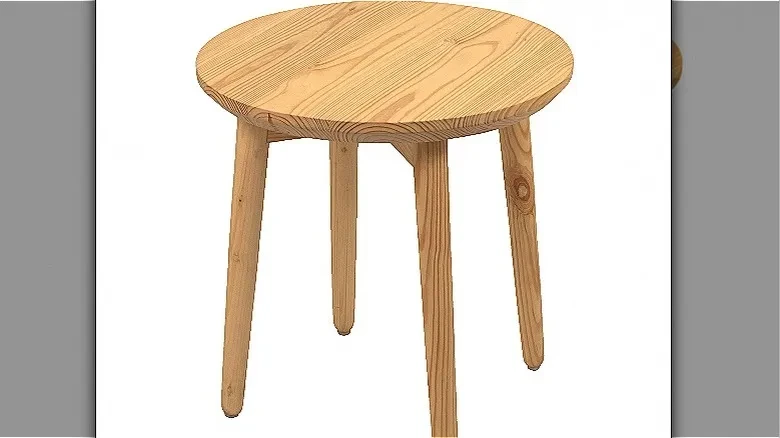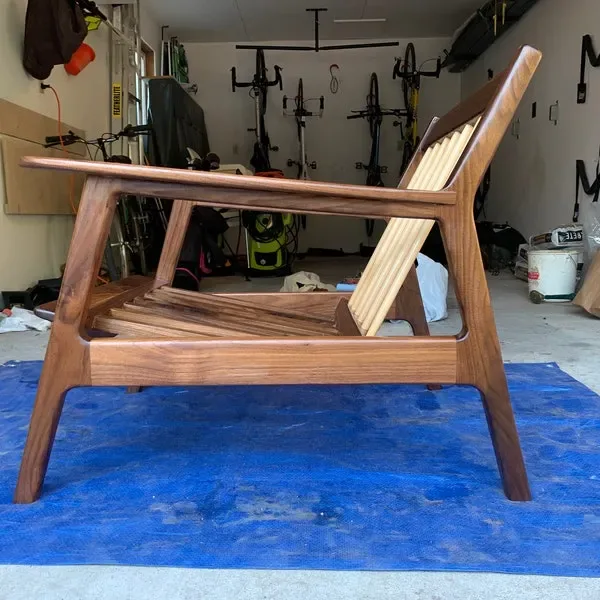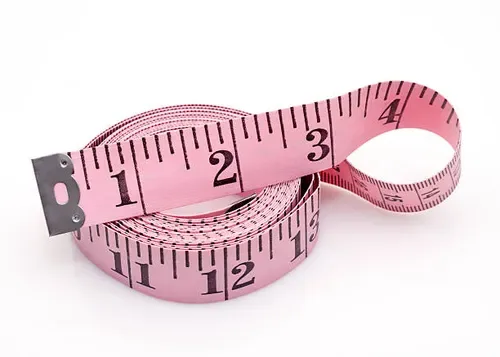Top Reasons for using Best Tools for Beginner Woodworkers
Safety First
Using the best tools ensures a higher level of safety, especially for beginners who may not yet be familiar with proper techniques. High-quality tools often come with built-in safety features, such as ergonomic handles, safety guards, and protective casings, reducing the risk of accidents. A well-designed tool can also provide better control, making it easier to handle, which minimizes the likelihood of mistakes or injuries.
Improved Accuracy
For beginners, achieving accuracy can be challenging without the right tools. Quality woodworking tools, such as precision saws, drills, and measuring instruments, offer better accuracy and ease of use. Accurate cuts and measurements are crucial for creating well-fitted projects. With the best tools, even beginners can achieve professional-looking results, giving them confidence in their skills and the finished product.
Durability and Longevity
Investing in high-quality tools ensures that they will last longer, making them a more cost-effective option in the long run. While cheaper tools may break down or lose their effectiveness over time, premium tools are designed to withstand regular use. For beginner woodworkers, this means fewer replacements, repairs, and the ability to work on multiple projects without worrying about tool failure.
Ease of Use
Top-rated woodworking tools are specifically designed with ease of use in mind, making them more user-friendly for beginners. Features like ergonomic grips, lightweight designs, and intuitive controls allow newcomers to use tools with minimal experience. This ease of use not only improves the overall woodworking experience but also boosts the learning process, enabling beginners to develop their skills more efficiently.
Better Finish and Results
The right tools make a significant difference in the final appearance and functionality of a woodworking project. Premium tools cut smoother, provide cleaner edges, and ensure stronger joints, which leads to a higher-quality finish. Beginners are often motivated by the results they achieve, and using top-notch tools increases the chances of crafting projects that are both aesthetically pleasing and structurally sound.
Learning Curve Efficiency
For beginners, mastering woodworking techniques can take time. Using the best tools helps to smooth out the learning curve. High-quality tools are designed to offer optimal performance, making it easier for newcomers to understand and apply techniques properly. This leads to a more efficient learning process, as beginners can focus on improving their skills without battling with difficult-to-use tools.
Boosts Confidence
Using reliable and effective tools boosts a beginner’s confidence in their woodworking abilities. When a beginner achieves good results with the best tools, they are more likely to take on more complex projects. Success with high-quality tools reinforces the positive experience of woodworking and inspires a desire to continue learning and improving their craft.
Styles That Embrace the use of Best Tools for Beginner Woodworkers
Minimalist Woodworking Projects
Minimalist woodworking embraces clean lines and simple designs, which are ideal for beginner woodworkers. Using the best tools helps achieve the precise cuts and finishes that are characteristic of minimalist style. These tools allow for smooth, straight cuts, enabling beginners to create uncomplicated yet stylish pieces such as small tables, shelves, or stools. The efficiency of high-quality tools also ensures that beginners can focus on the design aspects without worrying about tool reliability or difficulty in achieving clean results.

Rustic and Farmhouse Style
Rustic and farmhouse-style woodworking projects often require basic techniques such as sanding, distressing, and joining. Best tools, including hand saws, drills, and sanders, help beginners achieve the desired worn and weathered look with ease. The durability and functionality of quality tools ensure that these projects are completed efficiently while still maintaining the authenticity and charm that these styles are known for. Beginners can work on projects like barn doors, wooden picture frames, or storage units, all using tools that provide consistent results.

Modern and Contemporary Woodworking
Modern and contemporary designs often involve geometric shapes and sharp angles, which require accurate measurements and precision cutting. High-quality tools such as precision saws, miter saws, and drills ensure that these intricate projects are executed with the utmost accuracy. The sleek lines of modern furniture, like floating desks or media consoles, rely on the reliability and precision of the best tools to maintain a professional finish. Using these tools allows beginners to confidently approach complex designs and materials, contributing to polished, modern creations.

Upcycled and Repurposed Wood Projects
For beginners looking to embrace eco-friendly woodworking, upcycled and repurposed wood projects are a great option. Whether transforming old furniture or turning scrap wood into a new item, using the best tools makes the process smoother. Tools like jigsaws and routers help beginners cut through tough, reclaimed wood, while sanders ensure a smooth finish. Best tools also ensure that these projects are safe and efficient, allowing beginners to create functional, stylish pieces that align with sustainable values. Upcycled shelving, tables, or decorative pieces are all achievable with the right equipment.

Traditional Craftsmanship and Carving
Traditional woodworking and carving require fine tools to shape and detail wood into intricate designs. Best tools for beginners, such as carving knives, chisels, and mallets, allow for smoother carving, more control, and better finishes. These tools also ensure the safe handling of delicate projects like small figurines, bowls, or intricate wooden patterns. With the right set of tools, beginners can explore the art of traditional woodworking and carving, creating pieces that reflect classic craftsmanship while learning the skills necessary for more advanced work.

Popular Best Tools for Beginner Woodworkers
1. Tape Measure
A tape measure is an essential tool for any woodworker, especially beginners. Accurate measurements are the foundation of successful projects, so a reliable tape measure is necessary. It allows you to measure the dimensions of wood pieces, mark cutting lines, and ensure precision. Many tape measures come with a locking feature to hold the measurement in place, and some include both metric and imperial measurements. This tool is inexpensive and versatile, suitable for projects of all sizes, from simple shelves to more complex furniture pieces.

2. Circular Saw
A circular saw is one of the most useful and beginner-friendly power tools for cutting wood. It is versatile, easy to use, and affordable, making it perfect for new woodworkers. The saw can make straight cuts quickly and efficiently, and it’s ideal for cutting large sheets of plywood or trimming boards. Many models feature adjustable depth settings for different materials and include safety features such as blade guards and safety switches. For beginners, a circular saw provides a great way to get started with wood cutting before moving on to more advanced tools.

3. Power Drill
A power drill is an indispensable tool for beginner woodworkers. It allows you to drill holes, drive screws, and attach materials with ease. Most power drills come with adjustable speeds and various attachments, including drill bits and screwdrivers. This tool is essential for any woodworking project that involves assembling pieces, attaching hardware, or creating precise holes. For beginners, a cordless power drill is especially convenient, as it can be used anywhere without worrying about cords. With proper care, a power drill will quickly become one of your most used tools.
4. Jigsaw
A jigsaw is a versatile tool that allows beginners to make intricate cuts, including curves and angles, that are difficult to achieve with a straight saw. It uses a reciprocating blade to cut through wood, and with the right blade, it can cut a variety of materials, such as plastic, metal, and plywood. Jigsaws are perfect for smaller woodworking projects like crafting, model making, or creating custom designs. The compact size and ease of use make it an ideal tool for beginners to practice their cutting skills while working on creative projects.
5. Sanding Block or Electric Sander
Sanding is a crucial step in woodworking, as it helps smooth rough edges and prepares the wood for finishing. A simple sanding block or an electric sander is essential for achieving a polished look. For beginners, a manual sanding block is an affordable option that requires some elbow grease but offers excellent control for small projects. However, for larger projects, an electric sander saves time and effort. Orbital sanders are particularly useful for beginners, as they are easy to handle and provide a smooth, even finish on wood surfaces.

6. Clamps
Clamps are essential for holding wood pieces together while gluing or securing them for cutting and drilling. For beginners, having a variety of clamps is important, such as C-clamps, bar clamps, and spring clamps, as each has a different application. They help ensure accurate alignment and prevent pieces from shifting during assembly. Clamps come in various sizes, so you can find the perfect fit for your project. Using clamps properly helps avoid mistakes and ensures clean, sturdy results in all your woodworking projects.

7. Woodworking Square
A woodworking square is a handy tool for ensuring your cuts are accurate and your angles are square. It’s used to check the squareness of joints, guide your saw, and measure 90-degree angles. This tool is essential for making precise, clean cuts and ensuring your projects are structurally sound. There are different types of squares, such as a framing square or a combination square, but all are important for helping beginners achieve precise results. A square is an affordable, must-have tool for every beginner woodworker.

8. Hand Saw
While power saws are common, a simple hand saw can be an excellent tool for beginners to start learning the fundamentals of cutting wood. A hand saw provides more control over cuts and is perfect for smaller projects, such as cutting boards or trimming pieces to size. They are inexpensive, easy to use, and great for beginners who want to develop their cutting skills without the complexity of power tools. Hand saws come in various types, such as crosscut saws or rip saws, so you can choose the one that suits your project best.

9. Chisels
Woodworking chisels are essential tools for beginners who want to carve, shape, or fine-tune their wooden pieces. Chisels are ideal for cleaning up joints, removing excess wood, or making intricate designs in wood surfaces. They come in various sizes and shapes, such as straight, beveled, and curved blades, allowing you to tackle different tasks. Beginners should invest in a good set of chisels and learn how to use them properly, as they are versatile tools that can significantly improve the quality of your work.

10. Workbench
A sturdy workbench provides a stable surface for all your woodworking projects. It’s essential for securing materials, holding tools, and providing a comfortable workspace. For beginners, a good workbench should include built-in features like a vice, pegboard, or tool storage to keep your tools organized and within reach. A solid workbench offers the stability you need to work safely and efficiently, and it’s an investment that will make your woodworking tasks much easier. Many workbenches are adjustable, so you can customize them to your specific needs and space.

Quick Tips for Embracing Best Tools for Beginner Woodworkers
Start with the Essentials
When you’re just starting, focus on acquiring a basic set of essential tools. This includes a saw, drill, hammer, measuring tape, square, and clamps. These tools are versatile and can be used for most beginner woodworking projects. Once you become comfortable, you can gradually expand your collection to include more specialized tools.
Invest in Quality, Not Quantity
It’s better to invest in a few high-quality tools than to buy many inexpensive ones. Premium tools may cost more upfront, but they offer better performance, last longer, and provide a safer, more enjoyable woodworking experience. Look for well-reviewed, reliable brands known for durability and ease of use.
Learn Proper Tool Maintenance
To get the most out of your tools, it’s crucial to learn proper maintenance techniques. Regularly clean, sharpen, and oil your tools to keep them in optimal condition. Well-maintained tools work more efficiently and safely, which is especially important for beginners.
Take Your Time to Learn the Tools
Before jumping into a project, spend time learning how each tool works and its specific purpose. Understanding the right tool for the job and how to use it properly will improve your efficiency and precision, leading to better results in your woodworking projects.
Don’t Skimp on Safety Gear
Even as a beginner, safety should always come first. Invest in essential safety gear, such as safety glasses, hearing protection, and a dust mask. Using high-quality tools can help prevent accidents, but protecting yourself is also crucial, especially when operating power tools.
Take Advantage of Online Tutorials
There are numerous online resources, including video tutorials and woodworking forums, where you can learn the best techniques for using your tools. Watching experienced woodworkers and following along with tutorials will help you build confidence and master new skills at your own pace.
Practice Makes Perfect
Don’t be discouraged by mistakes, especially when you’re just starting. Practice with scrap wood to improve your skills before working on your actual projects. Using the best tools will help, but consistent practice will allow you to refine your techniques and gain better control over your work.
Prioritize Ergonomics
For a more comfortable woodworking experience, prioritize ergonomically designed tools. Tools with comfortable grips and lightweight materials are essential, especially for beginners who are just starting to build muscle memory. This will help you maintain control and avoid strain, making your woodworking projects more enjoyable.
Look for Tool Kits
For beginners, a tool kit can be a cost-effective way to get started. Many reputable brands offer woodworking tool kits with all the essentials. These kits are designed for beginners and often come with instructional guides, helping you familiarize yourself with the tools and how to use them effectively.
Ask for Recommendations
If you’re unsure which tools are best for your needs, don’t hesitate to ask experienced woodworkers for recommendations. Join woodworking communities or forums to gain insights and advice from people who have used these tools and can share their experiences, ensuring you make an informed purchase.
Conclusion
Embracing the best tools for beginner woodworkers is essential for setting a solid foundation in the craft. High-quality tools not only improve safety and accuracy but also enhance the overall woodworking experience. By investing in reliable, durable tools, beginners can achieve better results, more efficiently, and with greater satisfaction. As the skills develop, having access to quality tools will allow for the exploration of more advanced techniques and complex projects.